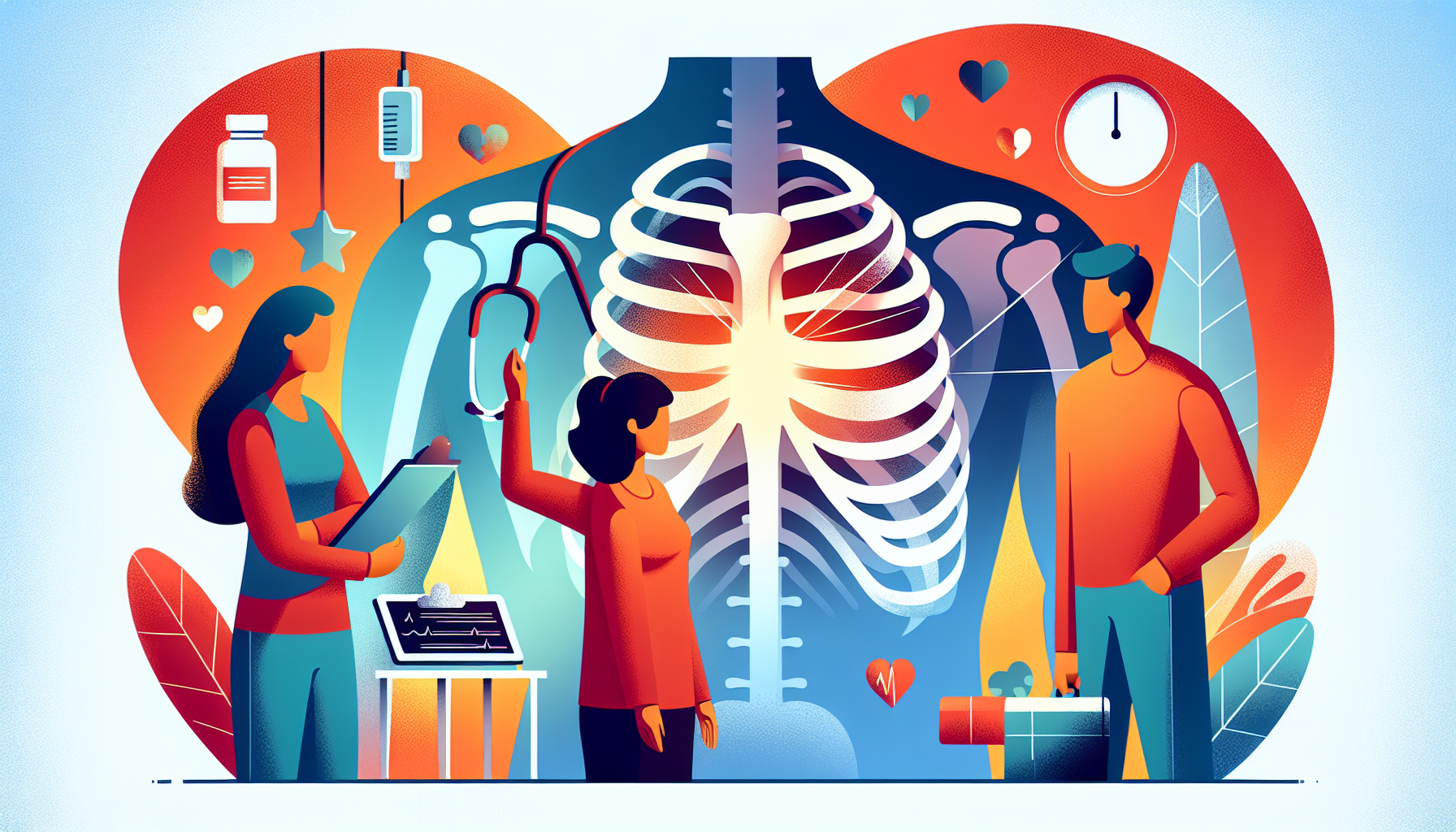Vaginal Dryness During Menopause
Meta Description: Understand why vaginal dryness during menopause occurs and explore effective treatments, from moisturizing therapies to low-dose estrogen and laser [...]
Read More
Medically reviewed by Oghenefejiro Okifo | MD, Harvard Medical School | Henry Ford Hospital - Detroit, MI on June 30th, 2023.
Most rib fractures heal naturally within 6-8 weeks without requiring surgery, as the chest's natural movement during breathing provides adequate stabilization for proper bone healing.
Pain typically peaks during the first 3-5 days after injury, then gradually decreases—severe pain lasting beyond 2 weeks may indicate complications like pneumothorax or damage to surrounding organs.
Deep breathing exercises should be performed every 2 hours while awake (10 breaths each session) to prevent pneumonia, which occurs in up to 31% of patients who avoid proper lung expansion.
Elderly patients and those with multiple rib fractures (3 or more) have significantly higher complication rates and may require hospitalization for monitoring and pain management.
Over-the-counter NSAIDs like ibuprofen (400-600mg every 6-8 hours) are more effective than acetaminophen alone for rib fracture pain due to their anti-inflammatory properties.
Broken ribs can be painful and may cause difficulty breathing. Understanding the causes, symptoms, and treatment options can help you manage the condition and promote a smooth healing process.
Ribs can break due to various reasons, including:
Trauma from accidents, sports injuries, or physical assaults
Repetitive motions, such as swinging a golf club or rowing
Severe coughing fits
Falls onto hard surfaces
Receiving CPR
Certain medical conditions, like osteoporosis or cancerous lesions
The most common symptom of a broken rib is sharp chest pain that worsens when:
Touching the affected area
Taking deep breaths
Twisting the body
Coughing or laughing
Bruising may also occur, depending on the cause of the injury.
To diagnose a broken rib, your doctor will perform a physical exam and ask about the cause of your injury. They may also order imaging tests to confirm the diagnosis and check for any internal damage:
X-rays can detect most rib fractures and other issues like a collapsed lung.
CT scans and MRIs can show fractures missed by X-rays and reveal damage to soft tissues and organs.
Bone scans may be used for stress fractures or if you have a history of prostate cancer.

In some cases, a broken rib can cause serious complications. The jagged edge of the broken bone may puncture or tear important structures, such as:
Blood vessels, if the break is near the top of the rib cage
Lungs, if the break is in the middle of the rib cage
Liver, kidney, or spleen, if the break is near the bottom of the rib cage
Most broken ribs heal within about 6 weeks. During the healing process, you can:
Rest and avoid sports activities
Apply ice to the affected area to reduce pain and swelling
Take pain medications, such as acetaminophen or ibuprofen, as directed by your doctor
Practice deep breathing exercises to prevent pneumonia
Avoid wrapping anything tightly around your ribs, as this can limit your breathing
In more severe cases, additional treatment or surgery may be necessary. For example, if a broken rib punctures your lung, you may need a procedure to remove air or blood from your chest cavity. In rare instances, badly injured ribs may require repair with metal plates.
If you suspect you have a broken rib, seek medical attention to receive an accurate diagnosis and appropriate treatment. By following your doctor's advice and allowing yourself time to heal, you can minimize complications and ensure a successful recovery.
For more information on broken ribs and their treatment, consult the following resources:
While most rib fractures heal without complications through rest and proper breathing exercises, severe chest pain after trauma requires medical evaluation to rule out internal organ damage. Proper pain management and lung expansion techniques are crucial for preventing pneumonia during the healing process. If you're experiencing persistent chest pain or breathing difficulties after an injury, Doctronic can help assess your symptoms and determine if immediate care is needed.
Meta Description: Understand why vaginal dryness during menopause occurs and explore effective treatments, from moisturizing therapies to low-dose estrogen and laser [...]
Read MoreMeta Description: Discover why perimenopause causes itching and explore effective relief strategies, from hormone therapy to skincare tips, to soothe dry and itchy skin.When [...]
Read MoreMeta Description: Understand why weight gain during perimenopause occurs and learn how to manage it through protein intake, resistance training, and better sleep habits.Why [...]
Read More